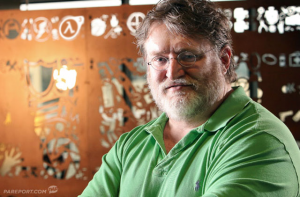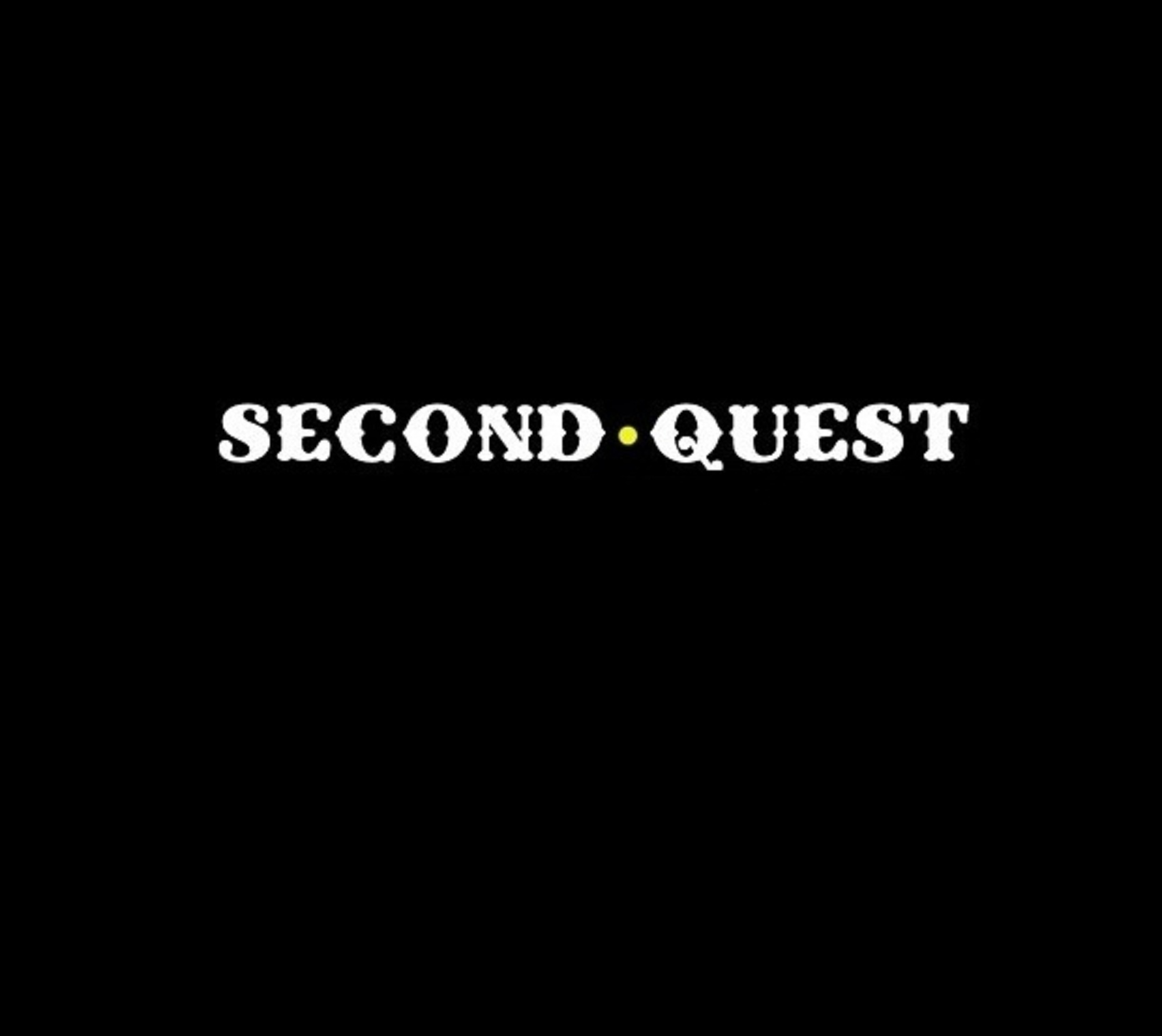Reddit, Kotaku, and Gabe Newell’s Beard
 Yesterday, Kotaku Editor-in-Chief Stephen Totilo fired up his computer, sat down, and wrote a response to a Reddit discussion, a response which was almost so pathetically earnest as to be endearingly sad.
Yesterday, Kotaku Editor-in-Chief Stephen Totilo fired up his computer, sat down, and wrote a response to a Reddit discussion, a response which was almost so pathetically earnest as to be endearingly sad.
Reddit, Totilo asserted, was being unfair to Kotaku. That Kotaku wasn’t getting its due. Totilo pointed out a number of recent articles that he felt were of exceptionally high-quality. He was a bit put out that Reddit was concentrating on mistakes and not acknowledging any successes.
During the less-than-two-months that Totilo has been Editor-in-Chief, a lot of questionable decisions have been made–programming blocks, an odd change to reviews, Kotaku Core. This post, which was all-but-guaranteed to make its way to a broader audience, is just another step in Totilo’s pattern of poor choices. It feels almost like walking right up to the jocks’ table in high school and asking them, reasonably, to stop making fun of you. It wasn’t a good idea when I tried that in 1998 and it isn’t a good idea for Totilo now. It goes beyond the fact that Reddit already has no respect for the site–tactics like this come across as fairly unprofessional and not a little immature.
This specific incident started as a result of Ben Kuchera’s interview with Valve’s Gabe Newell in The Penny Arcade Report. Newell is a prominent and intelligent figure in the gaming industry, Kuchera is a skilled interviewer, and PAR is a newly-minted publication from one of the most influential videogaming sites; a certain high level of quality was to be expected. The interview is an interesting one, one which touches on wearable computers, DRM, and console development, among other things. Rightfully so, it was passed around and linked in a lot of places.
Kotaku was no exception, and crackerjack reporter Luke Plunkett took on this job. His article, entitled, “Breaking: Gabe Newell Grows Beard” is–well, the title kind of says it all, doesn’t it? Plunkett’s writeup does not mention that it’s an interview, does not talk about any of the interview subjects–just spends its time acting memetically geeky. It’s the traditional videogame culture style–why say something meaningful when you can make an unfunny joke?
The story was linked on Reddit with the description “The Penny Arcade Report launches with featured Gabe Newell interview; Kotaku takes photo of bearded Newell, removes the watermark and reduces a 5,000 word interview to a story about Gabe’s beard“. To explain the watermark bit: The Penny Arcade Report story features a photograph of Newell–who does indeed have a beard, at least no one can accuse Plunkett of lying. Plunkett used this exact image for his own article; when the article was originally published, the image did not feature PAR’s watermark. Reddit felt, naturally, that the removal of the watermark put Kotaku solidly in the wrong. So their complaint was essentially twofold: Kotaku did not properly credit the image, and they did not take the article seriously enough.
Plunkett responded on Kotaku. He explained the watermark issue as an accident–the image was inadvertently cropped due to a quirk of the system, and in fact as of the time of this writing the image has been fixed, the watermark prominently displayed. For the sake of argument, let’s accept his claim as genuine and that it was an unintentional error. But that does make me wonder. If Kotaku is such a prominent site, why does it need to use other sites’ photos? Doesn’t Kotaku have any photos of Newell that they own the rights to?
But let’s put that aside. What of the “reduction to beard” aspect of the article? Plunkett explained that while he sometimes does journalistic work, he considers himself more of a “content provider”. In his words,
I basically strive to spend my nine hours in front of a computer, five days a week, not just informing you, but trying to entertain you as well. Give you some news or opinion to chew on, sure, but also something to email to your friends and say “isn’t this fucking funny/stupid?”…[Videogames] can be serious, and emotional, and interesting, but they can also be vapid, stupid and funny. Just like my content.
We’ll ignore the fact that Plunkett is bragging about writing ditzy fluff. What Plunkett is doing is devaluing his own work. His role is not to create but to direct to the work of others. If Plunkett can link to someone else’s article, regurgitate a couple of beard-related cliches, and get paid for it, what’s the impetus to come up with something well-written and entertaining? From a site management point of view, it makes more sense to get as many articles written as quickly as possible. It’s easier to surf around and link to other peoples’ content than it is to come up with content on your own–it certainly takes less time. If people are still visiting the site, it’s in Gawker’s interest to encourage as many posts for as little effort in order to get better traffic to entice advertisers. And from the advertisers’ point of view, the content is almost irrelevant: All that matters is that people are around to see the ads.
I would like to point out the punchline inherent in the fact that finding interesting stuff to link to is most of the reason for Reddit’s existence. Reddit has an extremely active userbase, all of whom maintain the site for free. Its flexibility allows sub-communities to be created in order to attract a specific group of people, its voting system helps better content to rise to the top–while it’s certainly not perfect, it’s much more geared towards aggregation than Kotaku’s blog format allows–and the fact that it’s user-generated means there’s a lot more content on there. Is Plunkett saying that his goal is to be a less-efficient Reddit?
In any case, Stephen Totilo went directly to the Reddit thread on the topic and responded, apparently creating an account for the express purpose of doing so. He asserted that any failure to credit was done intentionally, and spent the rest of the time bashing Reddit for the way that Kotaku is treated. He lambasted the practice of “tak[ing] a single article here or there and hold[ing] it up as a sign of all that is wrong with game journalism”, noting that “It apparently is much harder to notice or remember the many pieces of quality games journalism that appear on Kotaku.” He mentioned–but curiously did not link to–several recent articles which he felt were of a particularly high quality…although I should make clear that it wasn’t so much a mention as a petulant “Did you see this? Did you see that? Huh? Huh?”
“I prefer to have the work speak for itself” Totilo says in his 500-word post. Totilo’s main complaint is that the image of Kotaku–a slightly-trashy, basement-dwelling geekfest–does not align with the current reality–a publication which does feature good, original reportage and does take games seriously and does publish well-written articles. Perhaps Kotaku’s former reputation is not undeserved. Maybe it historically was very low-quality and only within the past several months has started to get its act together. Maybe Totilo does have some excellent ideas that will need some time to bear fruit.
But even though Totilo acknowledges that he’s been EIC for a short period of time, there’s a strong sense of impatience behind his post. As if all of those ideas should have paid off by now. This is an uphill battle, and it seems that Totilo is clueless about what he’s up against. It will take a very long time for Kotaku’s image to change. The way to do that is not to go and bitch on the internet about how people don’t take you seriously. That does nothing to change peoples’ opinion if they already look down on you. His post is so antagonistic. Using well-written articles as a weapon to prove your point doesn’t exactly make people want to read them.
“I prefer to have the work speak for itself,” Totilo says–but he doesn’t seem to realize that the work is speaking for itself. Yes, it’s terrible and horrible that the internet is focusing on your mistakes rather than your successes–but why are things like “Breaking: Gabe Newell Grows Beard” even being published? Does Totilo not get that things like this reinforce an adolescent image? Even if you argue that Plunkett had to hit a certain number of posts that day and that he needed to publish something, there are enough ways to write “Here’s an excellent interview with Gabe Newell” that would take even less time than trying to think up beard jokes, and writing that sort of thing might even give off the impression that Plunkett had actually read the article in question.
I write about Kotaku so much because of its prominence. Because, like it or not, it does go a long way towards providing an image of gamers. Whether we like it or not, Kotaku represents at the very least a visible segment of the community. I understand why Totilo is making the decisions he’s making. I get why they’re going for more serious coverage. I know why there have been more discussions about identiy politics and some vague attempts at addressing minority audiences. Frankly, Kotaku has been starting to grow up lately. Maybe that happened later than it did for the rest of us, but that’s okay–we all go through this kind of thing at different rates and growing up is something we never really stop doing. It’s beginning to realize there’s more to coverage of videogames than tit shots and console fanboyism–and quite unfortunately it’s doing this all in the public eye.
There’s an amount of socially-sanctioned experimentation allowed when you’re a teenager–we’re all allowed to make some mistakes. But because of its status in the community–well, it’s kind of funny that Kotaku has become its own Gawker trainwreck story. I mean, hell, I’m reveling in it with the same relish that people followed Britney Spears’ decline, degradation, and triumphant return. The problem is that every mistake it makes will be scrutinized for a while.
Perhaps if Totilo weren’t so cocky there’d be less of a problem. He seems so sure of himself. It’s like a 16-year-old claiming to be an adult. It’s getting there…but it still makes some mistakes due to its youth and inexperience. It finds profundity in Tim Rogers and hilarity in Luke Plunkett and interest in Brian Ashcraft and it doesn’t really seem to acknowledge that there’s something misguided into doing certain things the way they’ve always been done.
I don’t envy Totilo his job. Changing a website’s image is an incredibly difficult thing to do, especially with a site as distinct and ingrained as Kotaku. I appreciate that he’s trying out a lot of different things–I assume he’ll be adding and dropping features as appropriate. That sort of thing is natural when shifting focus. But if Kotaku wants to be seen as a mature site that features high-quality writing, throwing a tantrum on Reddit is not exactly a good way of going about that.
Filed Under: Blog
